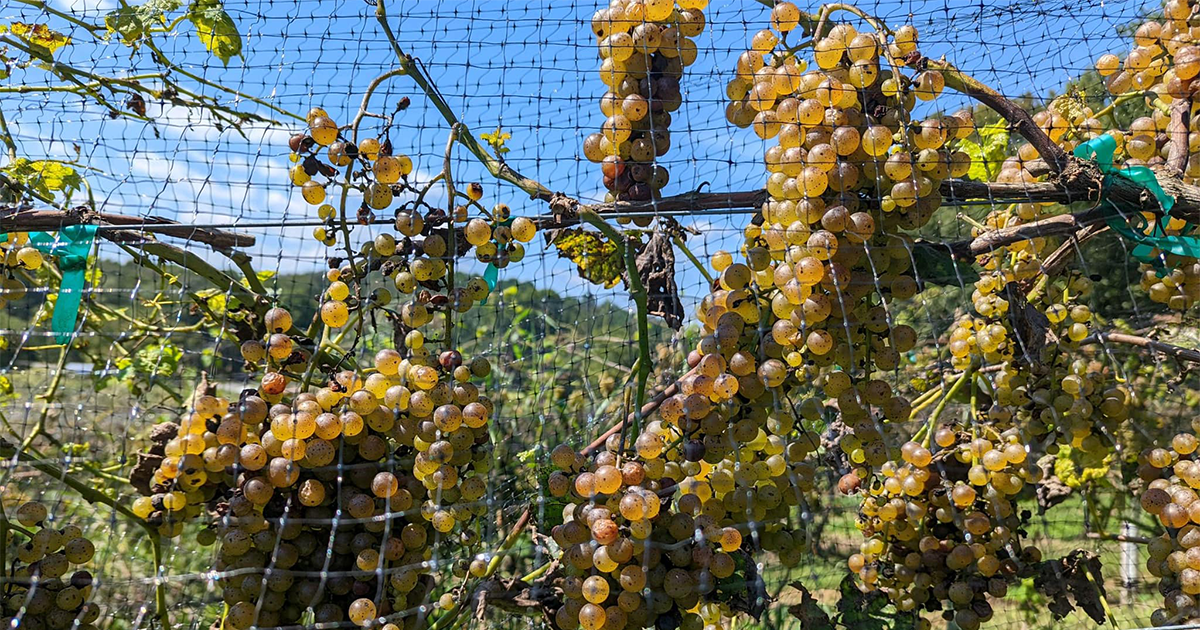Ellijay, GA
Recently in Ellijay, wine producers from across the state gathered for their annual meeting – a time of fellowship, learning, and business. This year, growers were able to learn about and discuss a ten cent per liter assessment on wine produced and sold here in Georgia that will be voted on in the coming weeks – something Eric Seifarth, Board Member for the Georgia Wine and Grapes Commission says is not a tax, but an opportunity that would help advance the industry.
“This is an opportunity for a commodity, in our case, the wine production commodity to generate income that is exclusively for our own use, and that money is derived by a cents per liter assessment for each and every producer of wine in the state, and that assessment would go to a fund that could be used by the entire industry to do things they want,” says Seifarth. “Our desire is to create a advisory board that would be under the commodity board, and that would be the, the basically where it would connect to all the growers within the state.”
Producers last voted on the assessment back in 2021 but was voted down nineteen to thirty-one. However, Seifarth believes it’s time to try again, as he says the industry can’t continue to grow without it.
“Georgia is still a new wine growing region,” says Seifarth. “There are still plenty of people in the state, and particularly in large urban areas who may vaguely know about the Georgia wine industry or know nothing about the Georgia wine industry. So, we’re looking for opportunities to market it and make that even clearer; that not only are we a wine region, we’re a wine region that’s making very high quality wines and is certainly an option when the Georgia buyer has to make choices of what they do with their entertainment money and we’re there for them to provide that.”
As a grower himself, Seifarth believes the most important argument for the assessment is so they can fund research that would help improve the industry – something he says has been needed since he started his operation more than two decades ago.
“When I started, there was nothing in the state of Georgia to support a wine grower,” says Seifarth. “There was no research, there was really no academic backing to it, no information pool that I could go to. So, what did I do? I had to scrounge from neighboring states and their information pools, and their research, which may or may not be exactly applicable to what we’re doing here in Georgia. Research can be very, very expensive. Universities or organizations are hesitant to do critical research unless an organization is willing to put up some money themselves. In Georgia, we have a plethora of issues that affect our growing of wine grapes; be they pest, be they climate change, whatever they are and we need help from academics to figure out how to best go forward.”
The vote for the assessment is set for sometime in Mid-March.
By: John Holcomb

